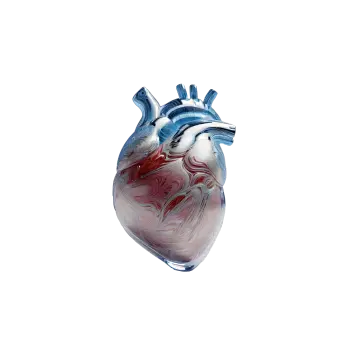There are two main types of cholesterol: low-density lipoprotein (LDL) and high-density lipoprotein (HDL). LDL cholesterol is often called "bad" cholesterol because high levels of it can lead to a buildup of cholesterol in blood vessel walls, which can lead to atherosclerosis (thickening and narrowing of the arteries) and increase the risk of cardiovascular disease. On the other hand, HDL cholesterol is often called "good" cholesterol because it helps transport excess cholesterol from the body's tissues to the liver for elimination. Triglycerides are another type of fat that is stored in the body and acts as an energy reserve. High levels of triglycerides in the blood are also linked to an increased risk of cardiovascular disease.
High levels can occur for several different reasons. Here are some common reasons:
- Genetics, dietary habits (especially intake of saturated and trans fats)
- Lack of physical activity
- smoking
- Overweight
- Certain medical conditions such as diabetes and thyroid disorders
To manage high blood fats, lifestyle changes are often the first step. It can include eating a balanced diet with an emphasis on healthy fats, increasing physical activity, quitting smoking and managing your weight. In some cases, doctors may also recommend medications to help lower blood fat levels. It is important to keep track of your blood fat levels through regular medical examinations because high blood fat levels can be a risk factor for serious cardiovascular problems.
Treatment of high blood lipids:
In the case of elevated blood fat levels, the choice of treatment is based on an overall picture of symptoms as well as other health indicators such as blood pressure and blood sugar levels. If you are in good general health, the first step is usually to adjust your diet and lifestyle, and then evaluate the effects of these changes. For people who have several risk factors for cardiovascular disease, a combination of lifestyle changes and cholesterol-lowering drugs may be relevant right from the start. In the case of hereditary hypercholesterolemia, lifestyle changes alone usually do not provide sufficient results. Here, it is usually necessary to use medication to effectively lower cholesterol levels.
The individual treatment strategy is based on an assessment of the patient's overall state of health and risk profile. It is important to remember that high blood fats are one of several factors that can increase the risk of cardiovascular disease, and therefore other health markers are also involved in the decision-making process regarding treatment.
























